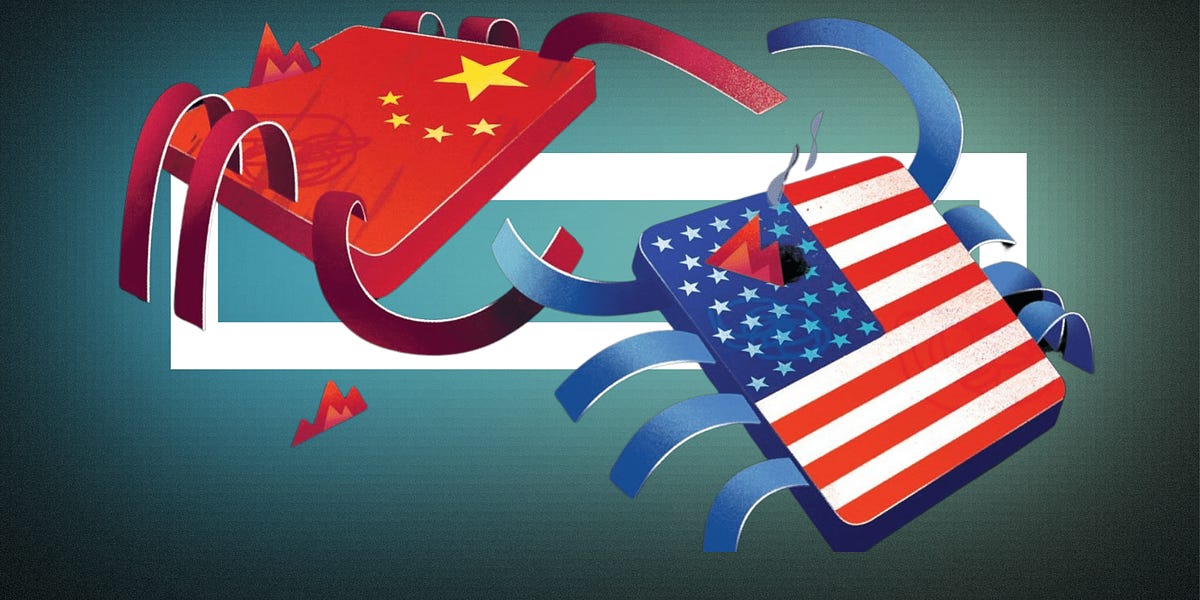Where are the tub-thumping National Security experts now?
The Peking ducks are in a row: the West was lured into focusing disproportionate capacity on Ukraine; Taiwan is more vulnerable than ever; our economies are rubbish; our militaries are more interested in drag queens; and there’s almost no onshore manufacturing capability in the event of an international crisis.
This isn’t to say Beijing wouldn’t have a rough ride in provoking an international crisis with the invasion of the aforementioned Taiwan. But if you are a betting person, you might feel like hedging on this one. Could the United States alone repel an attack on its critical, chip-manufacturing partner? Would the so-called “international community” feel as strongly? Do our politicians have the will to arrest any such behavior, or are they too busy faking be arrested, themselves?
And where the hell are the hawks, who squawked like headless chickens over the invasion of Crimea, but now act like heartless chickens over China? There’s an awful lot of avian analogies in here. Maybe it’s the bird-brained geopolitical responses of our ruling classes that has me fixated. Or maybe I want some duck bao buns. Probably both.
For several years my colleague Natalie Winters and I have attempted to explain the reach of the Chinese Communist Party in the Western world. Having infiltrated and corrupted high schools, colleges and universities, high-ranking military personnel, leading politicians, and of course the international corporate media, it suddenly seems very obvious why our elites – who usually clamour for war – are such “supine, protoplasmic, invertebrate jellies” when it comes to China. That line, by the way, was a tribute to the outgoing Boris Johnson, in case you missed it.
After Vietnam and Iraq and Somalia and Kosovo and Iraq again and Afghanistan and Ukraine… when we FINALLY ACTUALLY NEED the neoconservative chickenhawks, they’re nowhere to be found.
There is no Great Wall-to-wall coverage of how China is moving on one of its neighbours – a critical U.S. partner – perhaps because this time there might actually be U.S. national interest at stake here. And you can’t possibly make government policy based on what would help your own people. That would be racist or somethin’.
Instead, we will likely be treated to some perfunctory hand-wringing over China’s entirely foreseeable “surprise” attack on a sovereign nation. Then, like clockwork, Jake Tapper will pivot to blaming Vladimir Putin, and maybe air a segment on how Viktor Orban is also a dictator and might invade, uh, Sweden?
Keep on reading, but let me get your e-mail address to keep you informed on this:
Subscribe
The wider point is not how this collective sheepishness (is that tautological?) is risible or ridicule-worthy. It’s how there is very clearly no plan for the likeliest of scenarios: that Western supply chains from both Taiwan and China itself could dry up overnight. Think scarcity and inflation is bad now? Imagine the scenario played out by the Center for a New American Security (CNAS), which to the credit of Chuck Todd (I know!) was covered in detail on MSNBC.
In the CNAS simulation, China invades Taiwan in 2027. Frankly, assuming we have that much time is wildly optimistic. They moved on U.S. forces in Guam, Japan, and Australia in an attempt to limit the U.S. ability to fight back. It goes as you might expect – the U.S. further commits resources, ratchets up the fight, and eventually China detonates a High Altitude Electromagnetic Pulse (HEMP) device above the Pacific Ocean as a means of warding off America.
But it was how the war began that caught my attention: the Chinese sabotage of Taiwanese advanced chip manufacturing facilities that would send a major shock through Western economies.
As even the New York Times noted in January: “Taiwan accounts for half of the overall production of microchips that are critical to the functioning of mobile phones, consumer electronics, cars, military equipment and more. South Korea, the nearest competitor, has about 17 percent of the overall market. But Taiwanese chips are the smallest and fastest, and its foundries account for 92 percent of the most advanced designs.”
Beijing Joe himself recently conceded: “Ninety percent of the most advanced chips are made in Taiwan. China is doing everything it can to take over the global market so they can try to outcompete the rest of us and have a lot of applications — including military applications.”
SAIS professor Hal Brands wrote for Bloomberg: “According to a RAND Corporation study, a war lasting one year would slash America’s gross domestic product by a painful 5% to 10%. But it would gut China’s gross domestic product by an excruciating 25% to 35%. And lest Americans console themselves that China would get the worst of it, the entire world would suffer as the war ripped apart critical technological supply chains.”
But that RAND Corporation study is now six years old – an eternity in modern politics, war-fighting, and even economics. To underscore that point, when it was published, Barack Obama was President. If that feels like several centuries ago, that’s because it was, in a geopolitical sense. One might also wish to review RAND Corporation articles such as “Why Taiwan Can Feel at Ease with Joe Biden as U.S. President,” by Defense Analyst Derek Grossman as a means by which to take their words with a pinch of MSG. Taiwan feels at ease with this President as most Americans do.
Continue reading:

The Hawks Are Awfully Sheepish on China.
Where are the tub-thumping National Security experts now?
